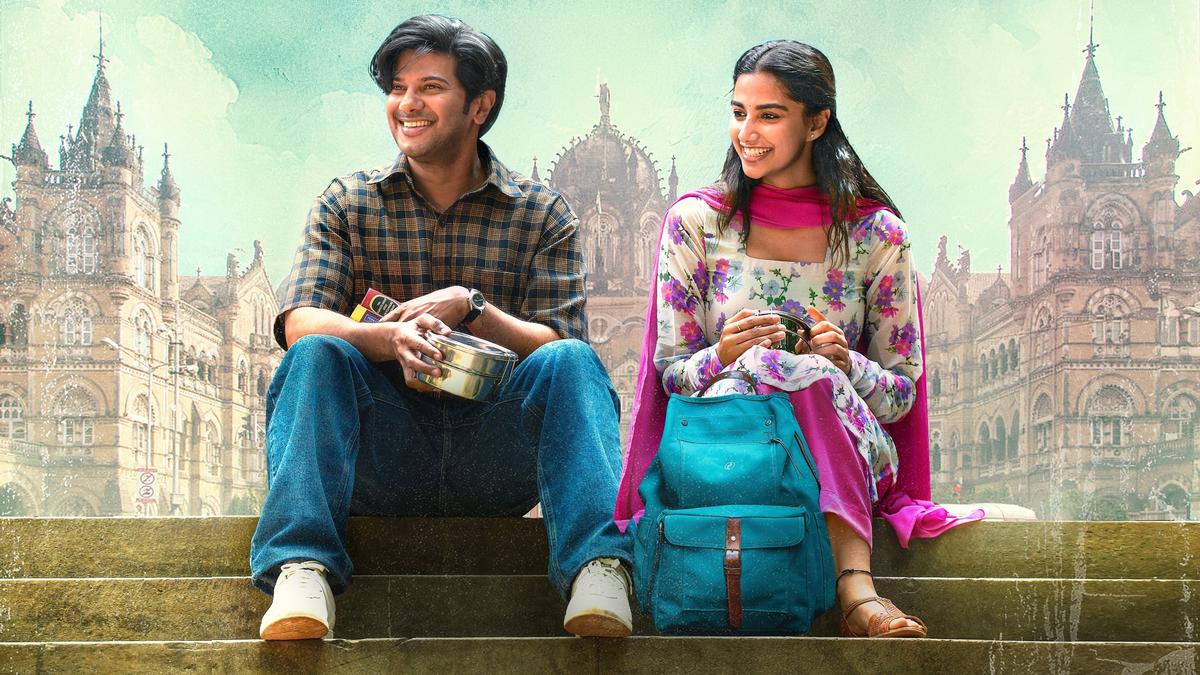
‘Lucky Baskhar’ movie review: Venky Atluri, Dulquer Salmaan deliver an entertaining drama
The Hindu
‘Lucky Baskhar’ movie review: An entertaining drama from Venky Atluri and Dulquer Salmaan
Lucky Baskhar, the Telugu film written and directed by Venky Atluri, employs the narrative technique of creating tense moments before a twist, then retracing a few steps to reveal the events that led to it, at sporadic intervals. The first time this happens, it is an indication of what the titular character is capable of. When this technique is repeated, there is the danger of it falling flat. There are occasions when we can pre-empt a twist, but the manner in which it unfolds brings a smile. This relationship drama woven around a financial scam is Atluri’s best work till date and is anchored by a powerhouse Dulquer Salmaan, who shifts seamlessly from a common man struggling to make ends meet to a shrewd banker driven by the need to make quick money.
The film begins with Baskhar breaking the fourth wall and telling us, the audiences, his story. Banglan’s production design recreates a lower middle class locality of Bombay of 1989-92, with Nimish Ravi’s camera snaking through the grey-tinged walls of the houses and the narrow, congested lanes.
The first hour of the film moves along familiar lines. Baskhar leads a hand-to-mouth existence, having to support his wife, son, two siblings and an ailing father. He is forever in debt and cannot afford three plates of vada pav. It is no surprise when Baskhar faces the wrath of a money lender, or when his family gets humiliated. In short, things go from bad to worse.
It is easy to guess that Baskhar will take the bait to make quick money. In these portions, the writing spells out every single detail in a bid to make it easier for everyone to understand Baskhar’s stealthy methods at the bank.
The relationship drama unravels simultaneously. When we first see Baskhar and Sumathi (Meenakshi Chaudhary), they are in sync with each other, having shouldered each other through tough times. The origins of their romance and the family frictions are revealed briefly in a song, negating the need for further explanation. While some characters in the family are on expected lines, a few characters — the father who keeps to himself and the six-year-old son who shares both his stress factors and his smartness — hold a few surprises.
The 1989-1992 setting allows the makers to bring in references to manipulation of the stock market and money laundering through a character similar to Harshad Mehta. The name is slightly tweaked and Atluri uses this creative liberty to present his own version of a banking and trading scam. If the fraud done by Baskhar in the initial portions can be attributed partly to his luck and partly to the lack of surveillance (an era before CCTV cameras), the later portions hold the key to smart storytelling.
At midpoint, when Baskhar breaks the fourth wall once again to tell us that the story has just begun, he means every word.













